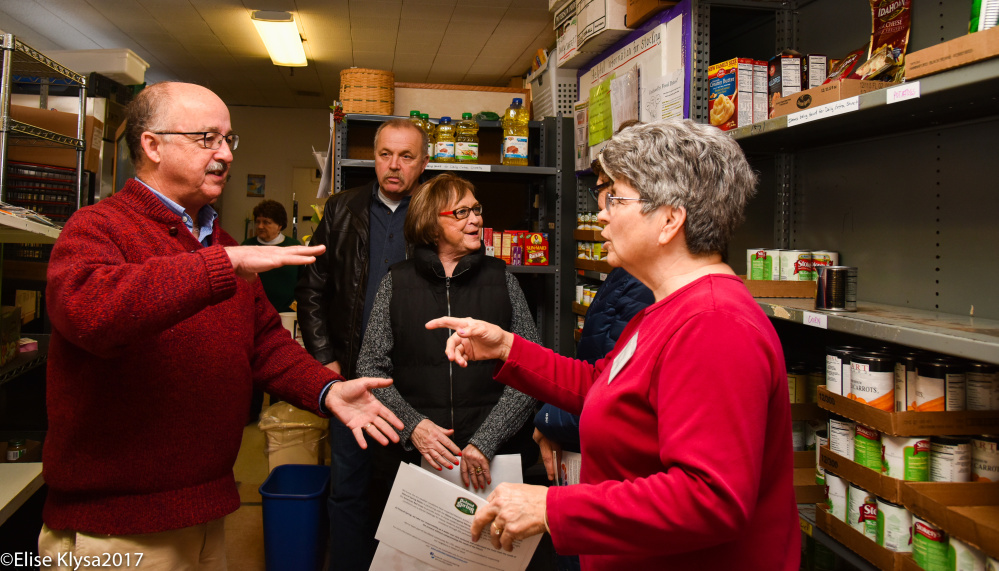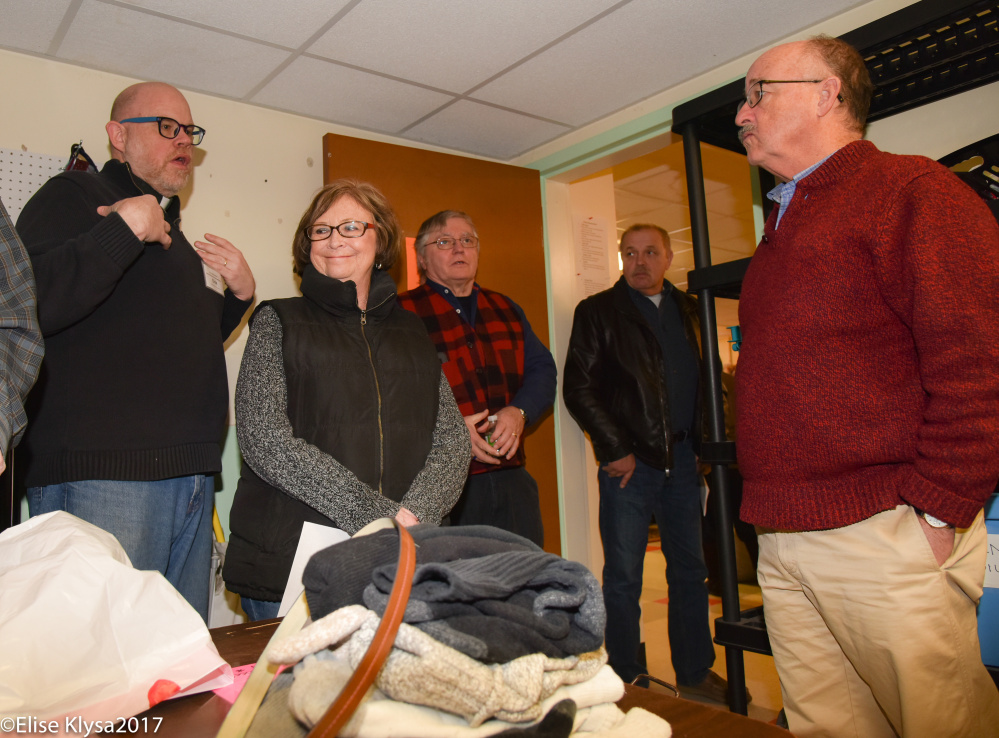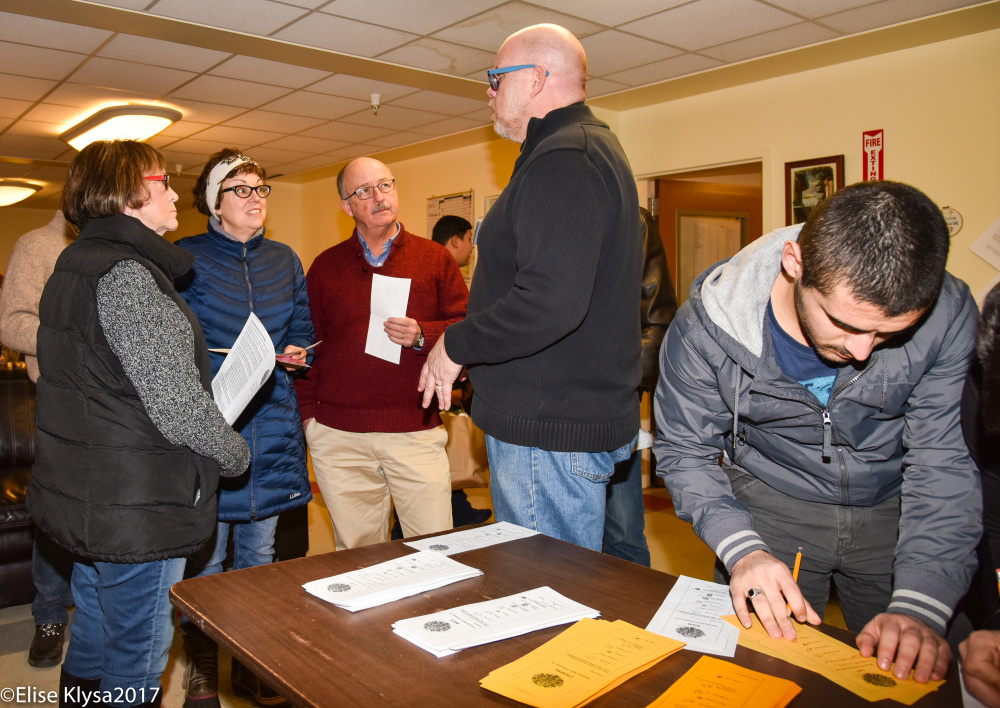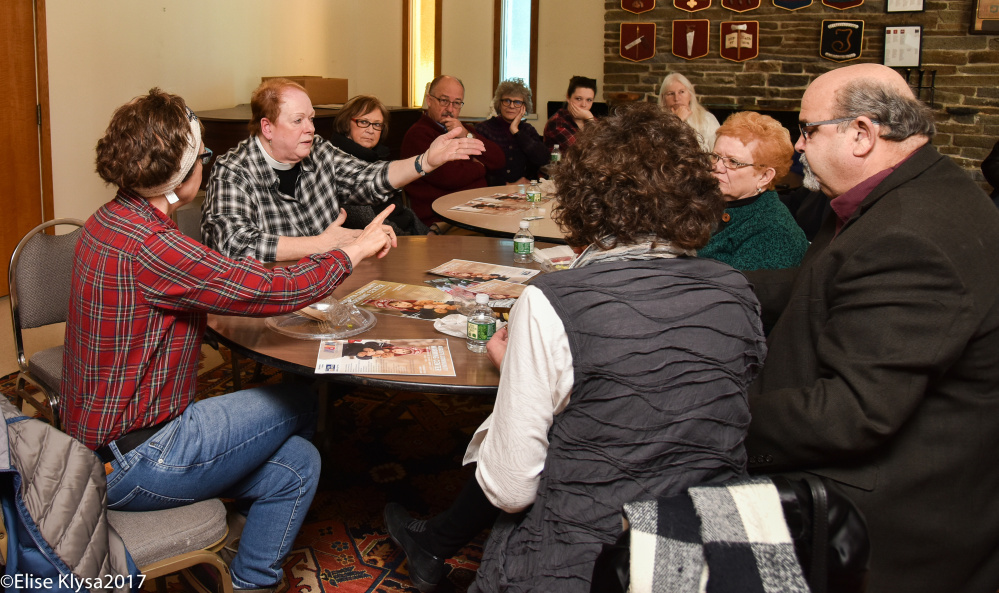AUGUSTA — A group of local leaders spent an hour Saturday touring the parish hall of St. Mark’s Episcopal Church, a property that houses various services for the needy, including a food bank and a warming center, but that has an uncertain future.
The church and its adjacent properties are for sale — the congregation can’t afford to maintain them in the long term — and that move could displace the social services now offered there.
It’s a dilemma that’s familiar to members of the City Council, who changed the zoning regulations in that part of the city last year after neighborhood residents grew concerned that a homeless shelter could be set up at the St. Mark’s site.
The organizations now clustered in the parish hall invited city officials for a tour so they could see firsthand what kind of services are provided there, said the Rev. Erik Karas, pastor of St. Mark’s.
Several councilors and City Manager William Bridgeo came for the tour, as well as a discussion beforehand.
“The city has been talking about these services and the needs of people on the margins,” Karas said. “This is an opportunity for them to see them in action.” He then gestured to the Basic Essentials Pantry, which occupies one corner of the parish hall’s basement: “It’s almost 400 people who will get toiletries today.”
That pantry and the Addie’s Attic clothing program are ministries of St. Mark’s. Other services housed in the parish hall include the Augusta Food Bank and the Augusta Community Warming Center, which is run by United Way of Kennebec Valley.
The center was bustling Saturday as people came to stay warm, drink coffee, chat with others and avail themselves of the other services. Those services are targeted at a number of vulnerable populations, including the homeless and the mentally ill. There are also refugees in central Maine, many from Iraq and some from Syria and Afghanistan, who have few possessions and seek services there, Karas said during the tour.
As the church looks at potential new sites in which to continue offering those services, Karas told the assembled officials, he would prefer they be housed under one roof, given how time-consuming and costly it can be for poor area residents to cross town to get access to them.
“If there was a clearinghouse for services, if there was a place with the essentials and the clothing, but also with offices for the other things people need to do, if it became a one-stop shop, then maybe the idea of having transportation to that clearinghouse would be easier than having a bus route that hits 10 different locations,” he said.
Meeting the needs of area poor is a top priority for city councilors, and Mayor David Rollins has been looking at large, vacant retail spaces that might serve as a new location for those services, according to Bridgeo.
“There’s no lack of desire on the part of the council, I would say unanimously, to craft a solution,” he said to Karas.
But Bridgeo also said that expanding transportation for those who rely on those services could be a challenge, given the upfront costs and the planning that would be required. Such work would easier if the state provided more funding to cities such as Augusta, which are service centers with large concentrations of poverty, Bridgeo said.
“It’s a challenging, almost daunting circumstance,” he said.
Charles Eichacker — 621-5642
Twitter: @ceichacker
Copy the Story LinkSend questions/comments to the editors.







Success. Please wait for the page to reload. If the page does not reload within 5 seconds, please refresh the page.
Enter your email and password to access comments.
Hi, to comment on stories you must . This profile is in addition to your subscription and website login.
Already have a commenting profile? .
Invalid username/password.
Please check your email to confirm and complete your registration.
Only subscribers are eligible to post comments. Please subscribe or login first for digital access. Here’s why.
Use the form below to reset your password. When you've submitted your account email, we will send an email with a reset code.